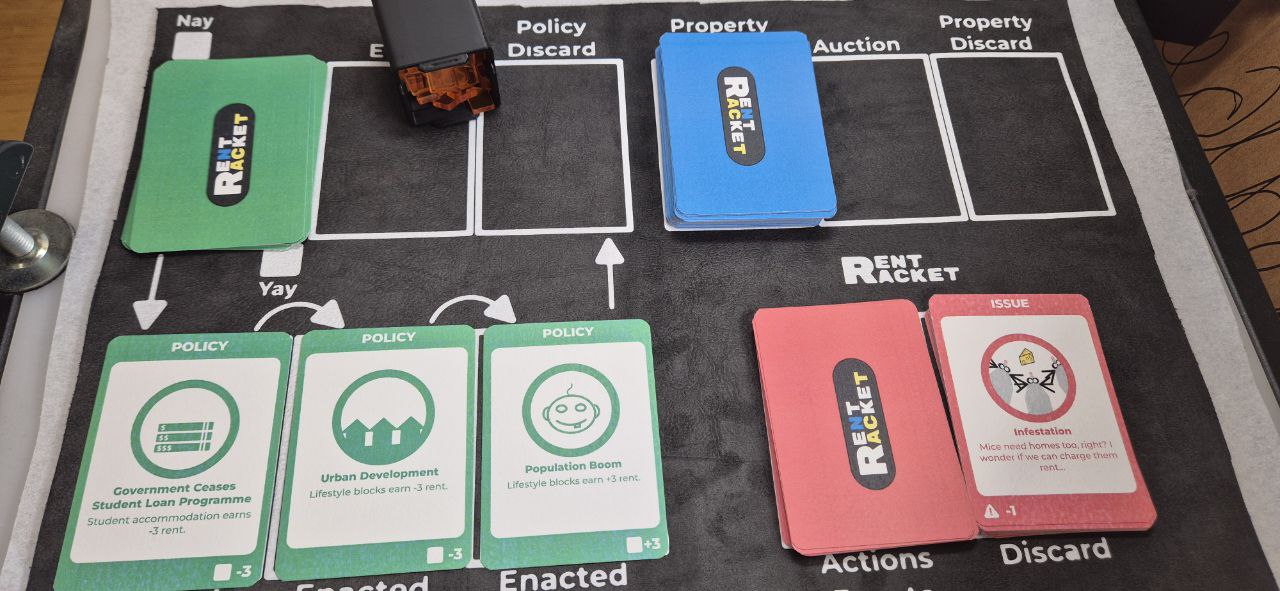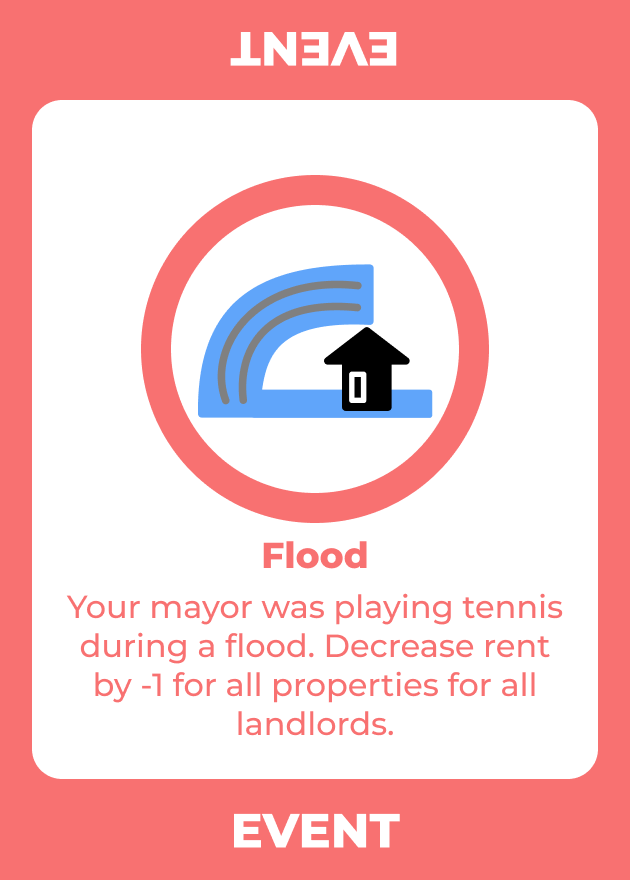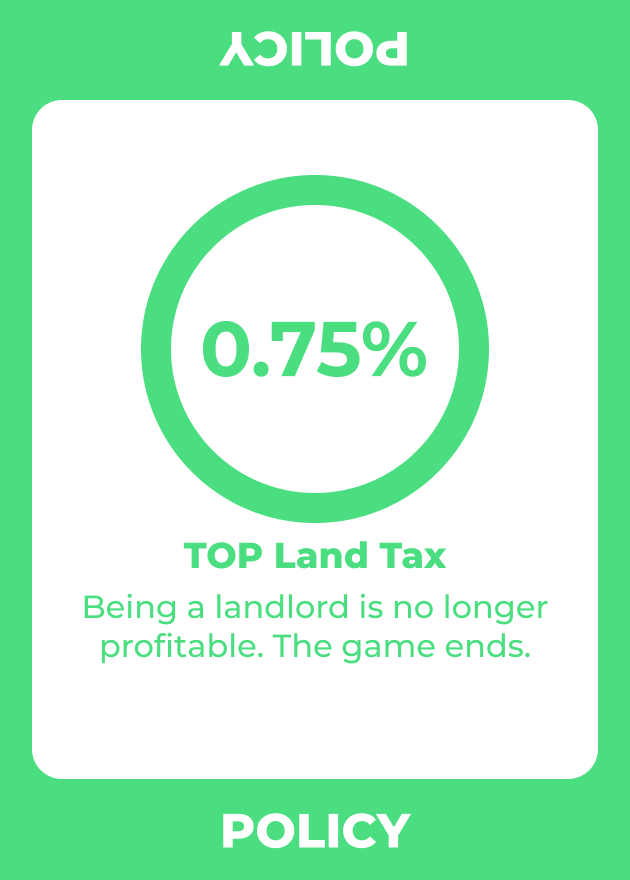
Rent Racket
Like many of the hackathons I've had the pleasure of attending, I came to Kiwijam '24 with the intention to create something physical. I arrived early to catch up with friends and fellow attendees, and I quickly found myself helping with the final preparations.
The theme for the event was quickly announced, "Home". We all began to mix and mingle, sharing ideas from "Animal Conservation", to "Homing Missiles", to the terrifying thought of passing away at home, alone.
I was fortunate to find two excited participants interested in making a physical game, Alex Bailey and Jerry Sun. The three of us quickly formed a group and got to ideating. Although many ideas were raised, we settled on a "Landlord Simulator" card game.
The rush to play
One of the beautiful elements of making a card game is that you can start playing your game soon and iterate quickly. We had a goal to set out the core systems of our game by EOD Friday, with the intention of playing by early Saturday morning.
We built our game around three core concepts: rent, lobbying, and issues.
Players would earn rent from properties, spend rent on lobbying, and keep up with maintenance on their properties.
A view on our political system
We were fortunate that the three of us shared the same political opinion. As we started planning cards in our theme, we introduced local concepts like "Friend of Luxon", and the "TOP Land Tax". Cards were introduced to poke fun at the situation our current government was getting us into.
Things got out of hand fast, with many cards being proposed that were just a little too political. We reeled it back, focusing on common ideas that wouldn't clutter the gameplay with our opinions and ideals.

Playing
We were able to start playing on the morning of Saturday. Running through the game with our first ruleset, we quickly realised the game needed to move faster. We had always intended to have the game end when the TOP Land Tax policy card was enacted, but the policy was one of seven cards in the policy deck, and the policy deck (along with others) was regularly shuffled. Furthermore, property issues were not accruing, and everyone was earning too much rent. The ironic parallels with our real economy were not lost on us.

At this rate, the game was never going to end. Based on these learnings, we revised the rules along with any impromptu rules we had decided during the first game.
The second game was much more successful, although it too yielded many learnings.
To end Saturday, we opened Figma and started designing our cards.
Productionising
In a mad rush to meet the 46-hour deadline of the hackathon, we moved to "productionising" on Sunday morning. We acquired some 240gsm card stock, and began printing. 10 sheets of A4 per game, guillotined into 90 cards, and corners cut with a corner cutter. Alex sewed a game bag, Jerry 3D-printed some currency token containers, we laser-cut the two types of currency tokens from 3mm translucent acrylic, and we played our first game with real cards.
The experience was fantastic. It felt genuinely polished in such little time. With three unique card piles, three discard piles, and 5 cards to be displayed to all players at any one time, it became clear we needed a board.
Unfortunately, I had to slip out to do some "market research". I had a property viewing to attend (unrelated to the hackathon).
While I was away, Jerry designed the board in Inkscape, and Alex cut it out on the vinyl cutter before ironing it onto some faux suede I had brought that morning.
The game was done. I returned just in time for the event to finish, and we had our first chance for other people to play.
Conclusion
For the first time in my hackathon experience, we picked a project entirely within our ability. Nothing major went wrong, we had no substantial setbacks, and the final product we produced felt polished and was fun to play. The game had some issues highlighted after the hack finished, and I plan to revise it into a more polished project for my friends.
Seeing as this was Zac (the event coordinator)'s last Kiwijam before he moved to London, I've offered to help organise the next one.
You can see the project here.